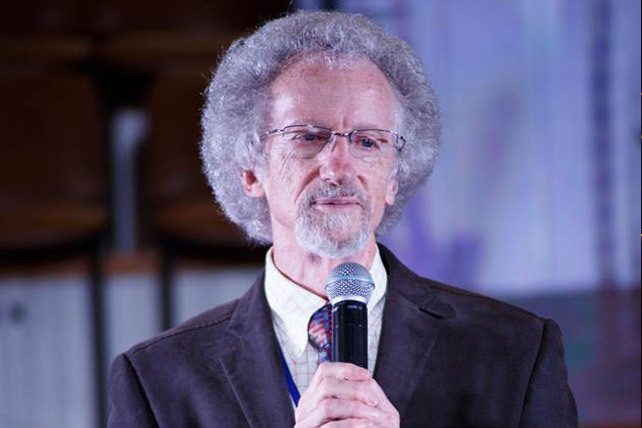In a Feb. 20 blog post, prolific Christian author Philip Yancey reveals he was diagnosed last month with Parkinson’s disease. The degenerative neurological condition hampers muscle-brain connections, and the severity of symptoms varies widely.
Yancey has authored more than 30 books, many of which wrestle with tough faith-related questions. In his 2021 memoir “Where the Light Fell,” he shares glimpses of “a bumpy childhood” and recounts the physical challenges of his older brother, Marshall, who had a stroke in 2009. Reflecting on how people often judge his courageous brother by the “externals” of his condition, Yancey recently “coined a new word—dislabeled—in protest.”
Philip Yancey: ‘I’m Still the Same Person Inside’
In his blog (also shared by Christianity Today, where Philip Yancey served as editor-at-large for 30 years), the Colorado resident recaps his journey to a diagnosis. While skiing a year ago, he crashed into a tree after giving “clear instructions for my legs to turn downhill, and they disobeyed.” Yancey’s gait, posture, handwriting, and golf game got noticeably worse, yet a doctor insisted he was “in great shape” and “can’t have Parkinson’s.”
Daily tasks became noticeably more difficult by last fall. Yancey switched insurance plans to see a neurologist sooner and began a “dopamine-based treatment along with physical therapy.” After his diagnosis, Yancey tried playing Pickleball but fell face-first on the court. In the ER, he realized “I’m not dislabeled after all” and needed to make lifestyle adjustments.
“In a preview of aging, disability means letting go of ordinary things that we take for granted,” writes Yancey. “Just as I’ve had to slow my pace when walking alongside my brother, now others must slow their pace for me.”
Learning to Embrace Our Unique ‘Disabilities’
Philip Yancey, co-author of “Pain: The Gift Nobody Wants” (1993), admits he would love to have Parkinson’s “magically removed from my life.” Without that option, though, he’s working on acceptance, knowing that life isn’t fair and “people are unequal in their abilities.” Instead of feeling resentful or ashamed, he writes, we can “somehow learn to embrace the gifts and ‘disabilities’ unique to ourselves.”
Pointing to Psalm 71:9 (“Do not cast me away when I am old; do not forsake me when my strength is gone”), Yancey writes, “That prayer expresses the silent plea of all disabled persons, a group that now includes me.” Now that the author has joined the one-quarter of Americans with some type of disability, he strives “to look past the externals—as I do instinctively with my brother—to the person inside.”
After decades of interviewing everyone from dignitaries to leprosy patients, Yancey observes: “Those who live with pain and failure tend to be better stewards of their life circumstances than those who live with success and pleasure. Pain redeemed impresses me more than pain removed.”

